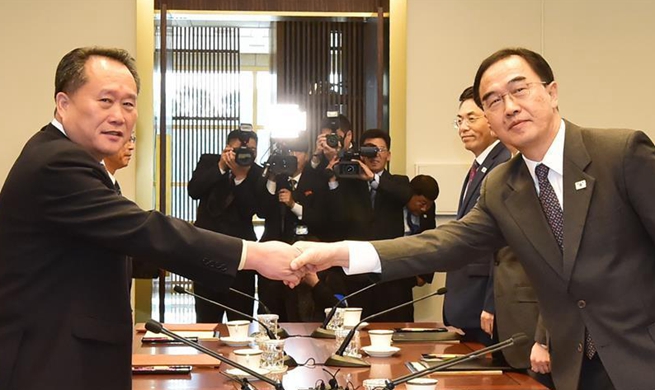BERLIN, Oct. 15 (Xinhua) -- Consumers in Germany will be charged 6.41 cents (7.42 U.S. cents) per kilowatt hour of electricity from renewable energy sources in 2019, the four largest German electricity grid operators announced on Monday.
The so-called EEG reallocation charge accounts for approximately a quarter of the final energy bill for German households and finances the difference between electricity prices on the exchange and the higher remuneration for renewable energy that the German government guarantees.
Holger Loesch, managing director of the Federation of German Industries (BDI), however, did not speak of an "all-clear signal for the electricity price" on Monday. Politicians would have to create stable, competitive framework conditions for all important cost components, added Loesch.
"The electricity price includes other cost components, such as grid fees or taxes. One cost block is currently falling slightly, but another one is rising very significantly - such as grid costs recently. This does not help electricity customers," Loesch said.
The charge for private households will be lowered for the second time in a row, decreasing by 5.7 percent compared to 2018. For 2019, the major German grid operators expect total revenues of 22.59 billion euros (26.18 billion U.S. dollars) from the reallocation charge. Energy generated from regenerative sources is set to increase by approximately 13 terawatt hours (TWh) to a total of 217 TWh in 2019.
According to the grid operators, the high price of electricity on the electricity exchange was the main reason for the reduction of the charge. In Germany, electricity prices have been continuously rising over the last months and have roughly doubled since 2016. Forecasts by the grid operators see electricity prices at high but stable levels over the next year.
The Federal Renewable Energy Federation (BEE) stated that the rise in prices for CO2 certificates in European emissions trading would also have a "positive effect" for consumers. "The increased CO2 price for fossil energy sources rewards climate-friendly energy production and improves the economic commercialization of renewable energies. This means that the EEG reallocation charge will decrease," BEE managing director Peter Roettgen told the German newspaper Handelsblatt prior to the final announcement of the EEG reallocation charge on Monday.
The price for a CO2 certificate within European Emissions Trading System (EU ETS), which allows companies to emit one ton of CO2, has risen significantly over the last 12 months. At the beginning of September, the CO2 prices climbed to a maximum of 24.85 euros per ton, more than 225 percent higher than one year ago.













